Thai youth shaping a greener future through innovation through the project Wonder Lab: Youth for a Greener Tomorrow
UOB supports and empowers the youth of Thailand to drive sustainability and shape the future
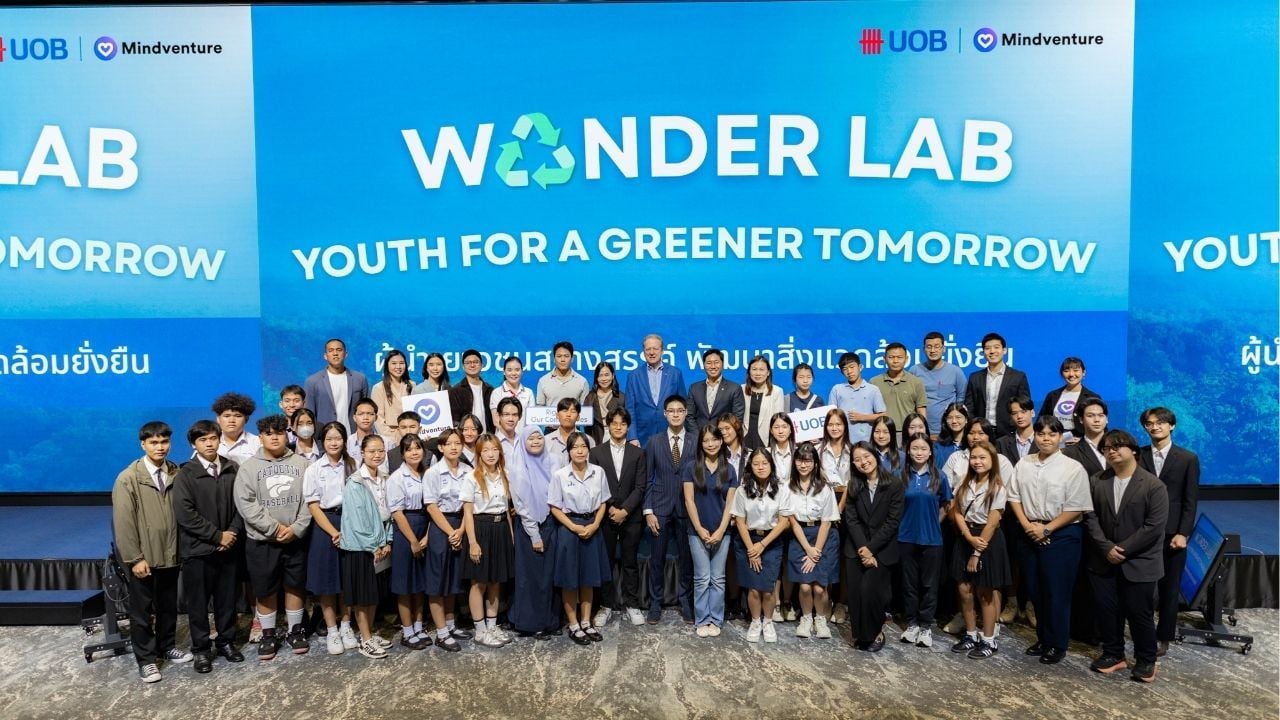
Sustainability is one of those topics that can feel abstract until you see it in action. In Thailand, a group of young people recently showed that tackling environmental challenges does not always require big budgets or government programmes. Sometimes, it starts with students, a few bold ideas, and a platform that believes in their potential.
That platform was Wonder Lab: Youth for a Greener Tomorrow, the presentation event of which I attended on September 13, a project created by UOB Thailand to help young innovators turn their ideas into tangible environmental solutions.
Out of 102 teams from across the country, only 10 were shortlisted for the final round. I had the opportunity to speak with three of these finalist teams, hearing directly from the people behind the projects and learning how their work could influence Thailand’s environmental future.
| Ten teams, ten ways to make a change | |
|---|---|
| Teams | Project |
Chan Koet Chak Ko Phai, Chan Loei Rak Lok | Addressing food waste in schools, the team developed a real-time data app tracking daily consumption and leftovers, reducing waste by 70% within a month. |
6P | Shifting mindsets in education through campaigns and systems that encourage students to separate trash, increasing school waste segregation by 340%. |
Jungle Natural Team | Repurposed discarded pineapple leaves into biodegradable cat litter, turning agricultural waste into an eco-friendly and commercially viable product. |
Nakhon Sawan Rak Sing Waet Lom | Transformed plastic waste into woven fabric and bags, blending recycling with traditional craftsmanship, creating cultural and economic value. |
GreenCycle Crew | Repurposed plastic scraps into filament for 3D printing, linking sustainability with technology and next-generation industry applications. |
eco.edu | Designed a board game about microplastics, educating students interactively on how invisible pollutants affect ecosystems and human health. |
BigFamily PPP | Developed sports markers from discarded plastic bags used in farming, showing practical ways to repurpose agricultural waste. |
Trashformers | Built an air purifier from discarded electronic waste, tackling PM2.5 pollution while giving e-waste a second life. |
Mynes Green Rangers | Organised youth-led workshops to protect the Mekong River, raising awareness of ecosystem threats from dams, waste, and neglect. |
Tui Aof Sing Waet Lom | Used Pad Thai as a campaign tool to highlight food waste, sparking relatable and memorable conversations about social responsibility. |

The exhibition tables at the event, where the projects of the participants are displayed, such as this air purifier from the Trashformers team
For expats and long-term residents, the significance goes beyond a single event. Thailand’s environmental challenges affect everyone living here, whether it is air pollution, waste management, or the looming threat of climate change. Seeing the next generation not only concerned about these issues but actively addressing them is a story worth paying attention to.
From an internal idea to a national platform
Before diving into the projects themselves, some context is needed. The Wonder Lab initiative did not start as a nationwide competition. According to Dhornratana Olanhankij, Country Head of Brand, Media and Communications, UOB Thailand, it began as an internal programme called Waste to Wonder. Its original goal was simple: to encourage employees to separate waste and adopt more sustainable behaviours.
Over time, this internal effort grew into something larger. UOB saw the opportunity to take the concept beyond its own walls and empower Thailand’s younger generation to create real change in their communities.
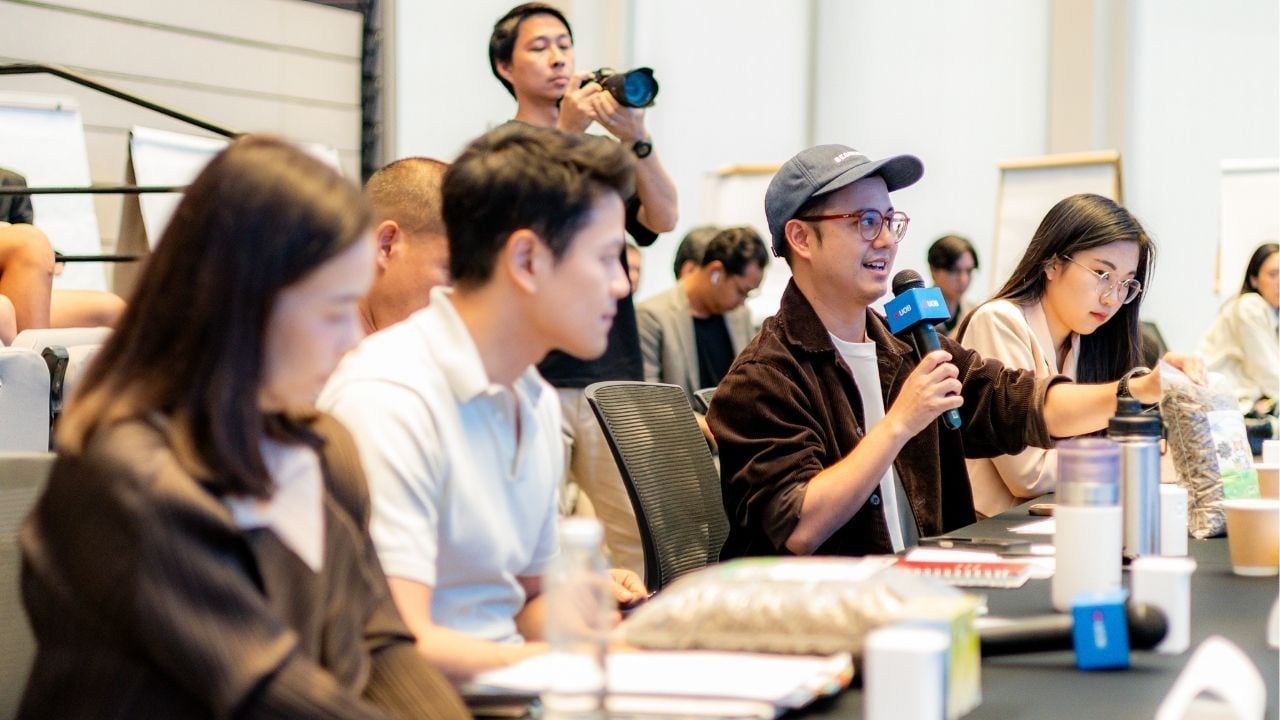
“Young people are the heartbeat of the movement. They start with simple ideas, and with the right tools and support, they turn them into real action. Awareness may seem small, but it can transform behaviour and spark change across communities.”
This year’s event brought together students aged 17 to 25 from across Thailand. Within just two weeks, 453 participants across 102 teams submitted and worked on their ideas, encompassing a range of solutions from waste management to air pollution mitigation. From there, only 10 teams were selected to develop their concepts further with the help of sustainability experts and mentors.
Meeting the young innovators behind the projects
At the Wonder Lab event, I had the chance to sit down with three finalist teams of the ten: GreenCycle, eco.edu, and Trashformers. Each of them came with different perspectives, different challenges, and different goals, yet all shared the same determination to create something meaningful.
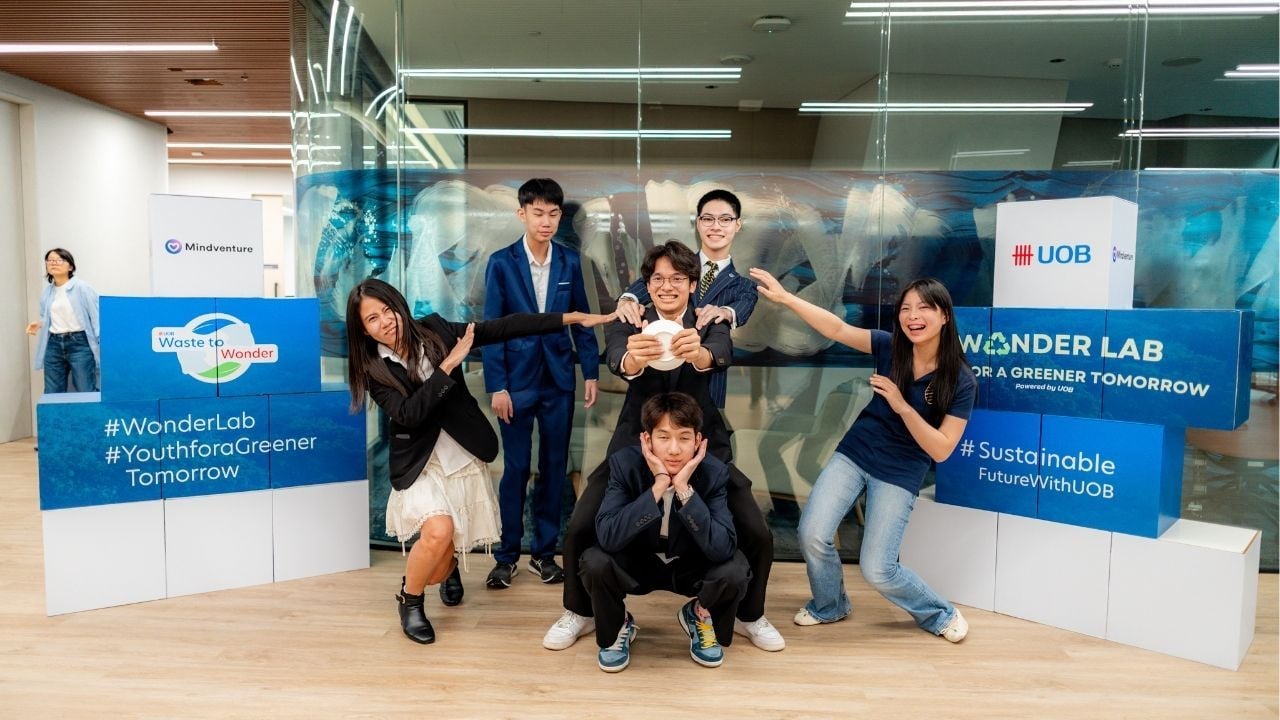
GreenCycle focused on Thailand’s growing plastic waste problem. Their project used technology to scan plastic types, recycle them into 3D printing filaments, and then produce everyday items like bookmarks, pencil holders, and even bottles. They told me about hosting mini competitions at schools to collect and weigh plastic waste, making recycling a fun and educational activity for their campus community.
The team admitted the biggest challenge was not the technical side but communication, particularly with adults who were sceptical about the practicality of student-led projects. Mentors stepped in to help them create a clear framework and a plan for scaling up production using the funding they received. One team member summed it up perfectly…
“Think outside the box and don’t give up. If you fail one day, you can still keep going.”
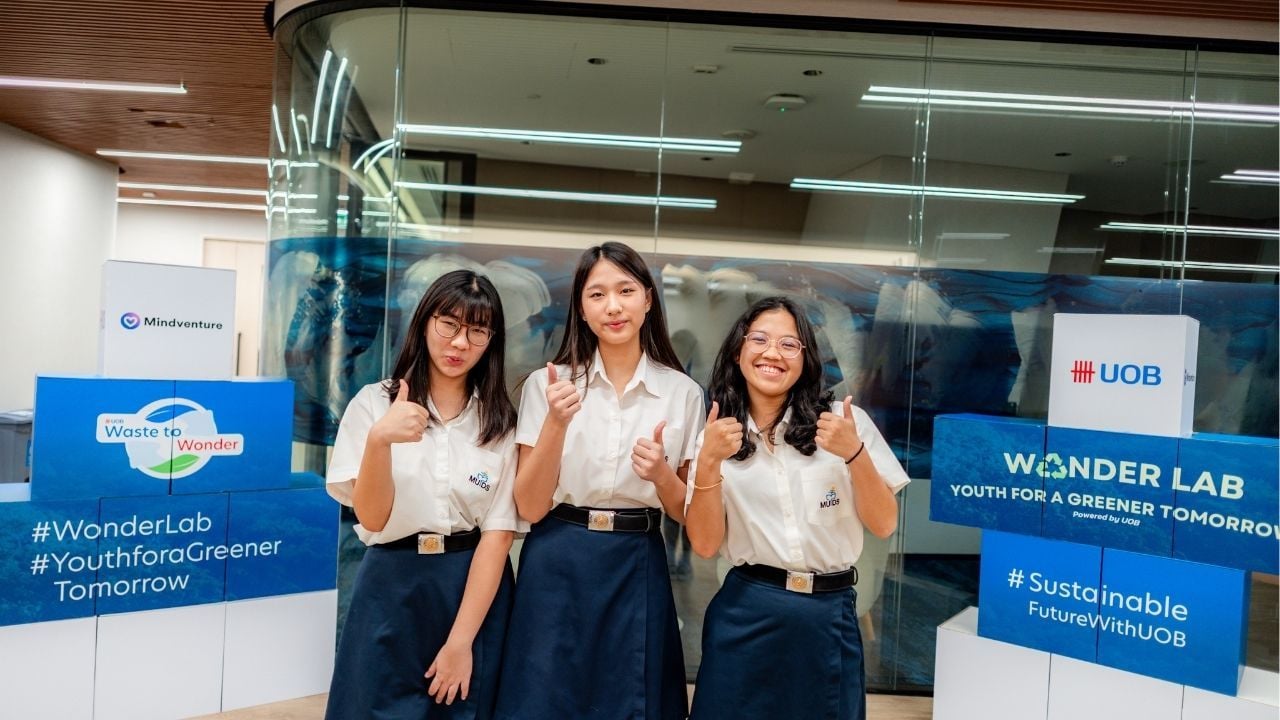
Moving on to eco.edu, their approach combined education and creativity. They developed a board game teaching players about microplastics: what they are, how they affect health, and how small daily habits can reduce pollution. The concept was simple but powerful: players take turns placing cards while trying to keep microplastic levels below 99 units.
The team faced time constraints, limited budgets, and the challenge of finding a printing company willing to work within their short deadline. Despite this, they learned valuable lessons about content creation, product design, and working under real-world conditions. They now plan to refine the game, include more environmental topics, and reduce production and retail costs so more people can access it.
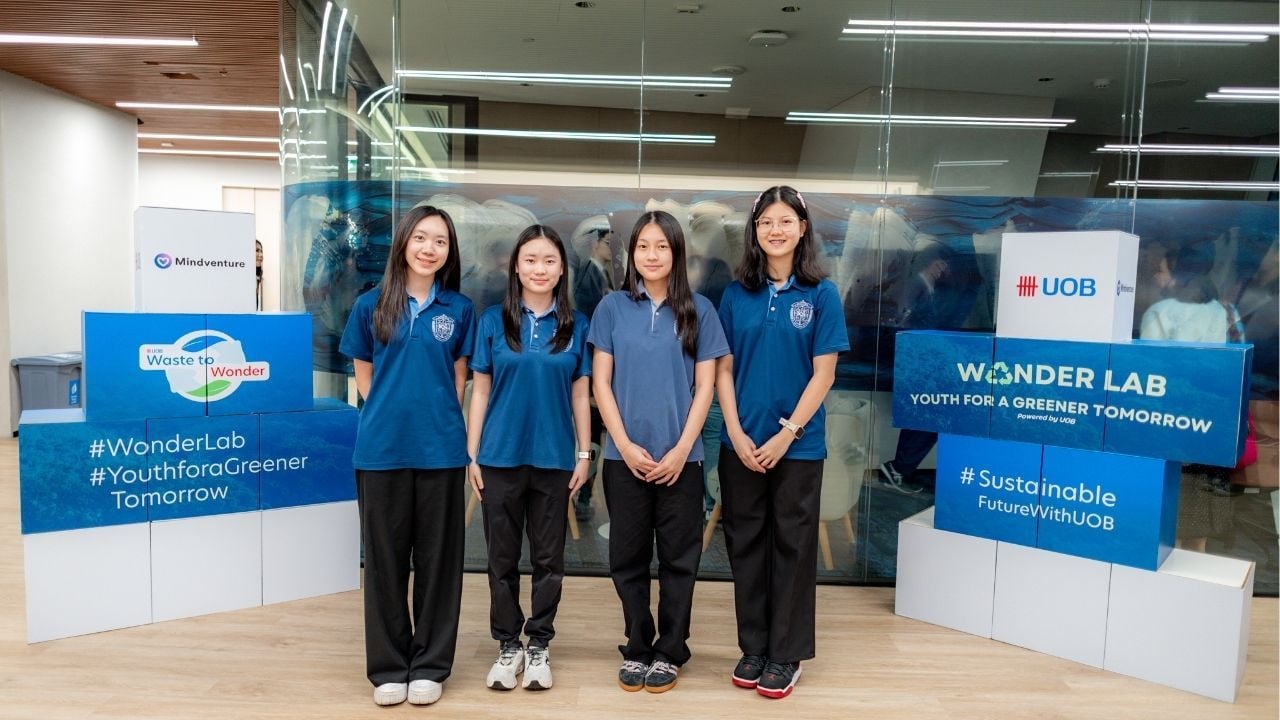
Lastly, Trashformers addressed air pollution, a problem that many in Thailand, including expats in cities like Bangkok and Chiang Mai, know all too well. Their idea was to create DIY air purifiers using recycled cardboard from online shopping waste, combined with small electronic components.
They told me about the workshops they hosted, teaching communities how to build the purifiers themselves. Time and materials were constant hurdles, but the team is already looking at ways to improve the design for wider use.
More than just projects
What struck me during these conversations was not just the innovation behind each idea but the personal growth the students experienced during the Wonder Lab project. Dhornratana mentioned this as well, explaining that UOB’s goal was not only to fund projects but also to develop skills like storytelling, presentation, and leadership.
“Young people often start shy and unsure of themselves but with the right mentorship, they gain confidence, learn to communicate their ideas, and see themselves as capable of leading change.”
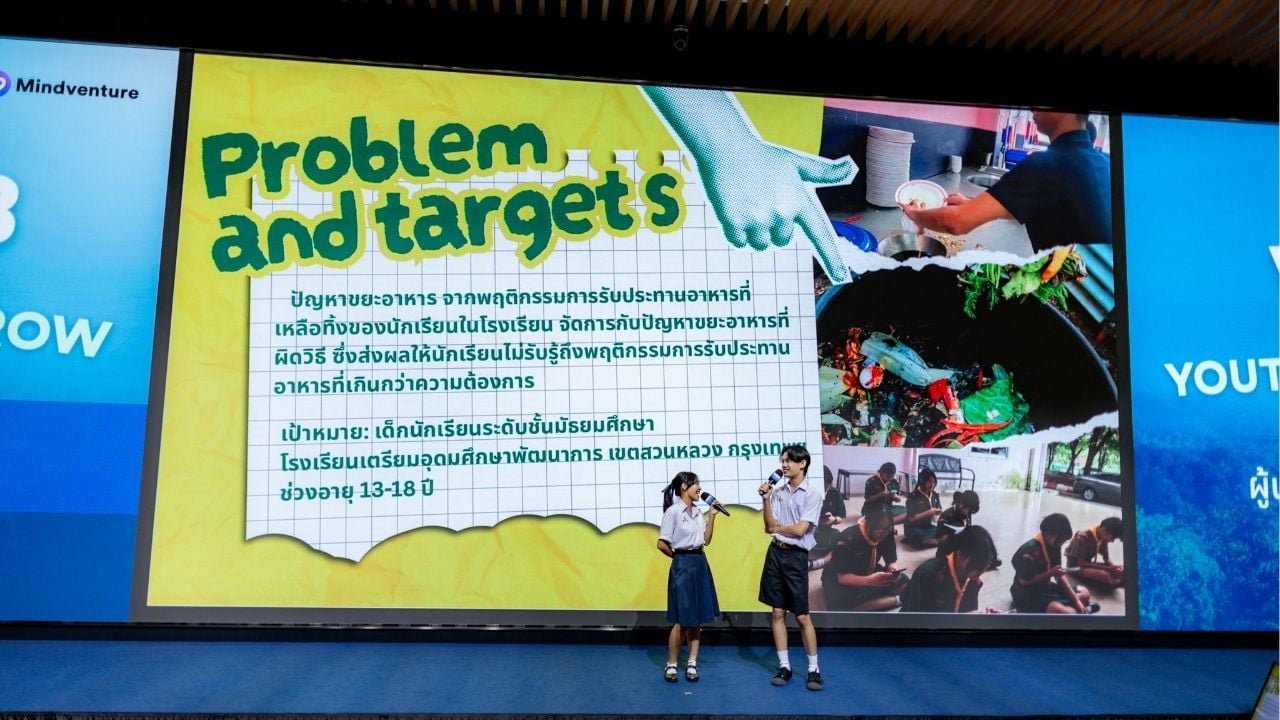
This was clear when listening to the students. Initially, many of them admitted they were unsure if their projects would be successful. Some faced resistance from schools or local communities and others struggled with time, balancing academics and competition deadlines. Yet they all agreed that the experience transformed them, both in terms of technical skills and personal growth.
However, I wouldn’t stop to think that it stops right there because, other than personal growth, I believe that these students had to engage with and recruit the help of their community to spread the idea and spirit of sustainability beyond themselves. This in itself is impactful as they spread the concept of sustainability, akin to how one can spread kindness.
Why this matters for Thailand and beyond
Dhornratana believes this year’s Wonder Lab is only the beginning. The long-term goal is to expand the programme across ASEAN, creating a regional network of young sustainability leaders.
“Climate change doesn’t stop at borders. If we want lasting solutions, we need collaboration across countries, industries, and communities.”
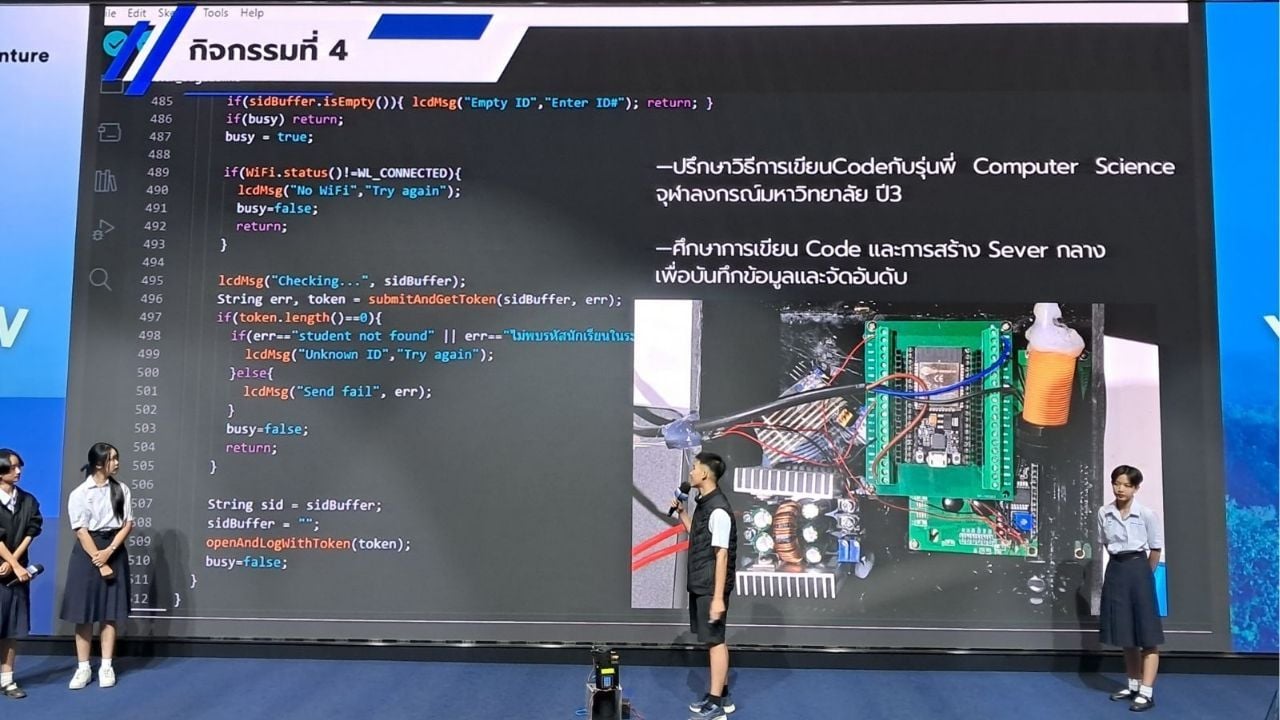
For foreigners and expats living in Thailand, this work matters more than it might seem at first glance. Cleaner air, better waste management, and sustainable practices benefit everyone, whether you have lived here for a year or a lifetime. These student projects may start small, but they create ripple effects that reach far beyond a single school or community.
Lessons for the future
When asked what advice they would give to other students, the teams shared similar thoughts: start small, stay disciplined, and do not wait for perfect conditions.
“Storytelling is important. If you want people to care, you have to make them feel connected to the problem and the solution.
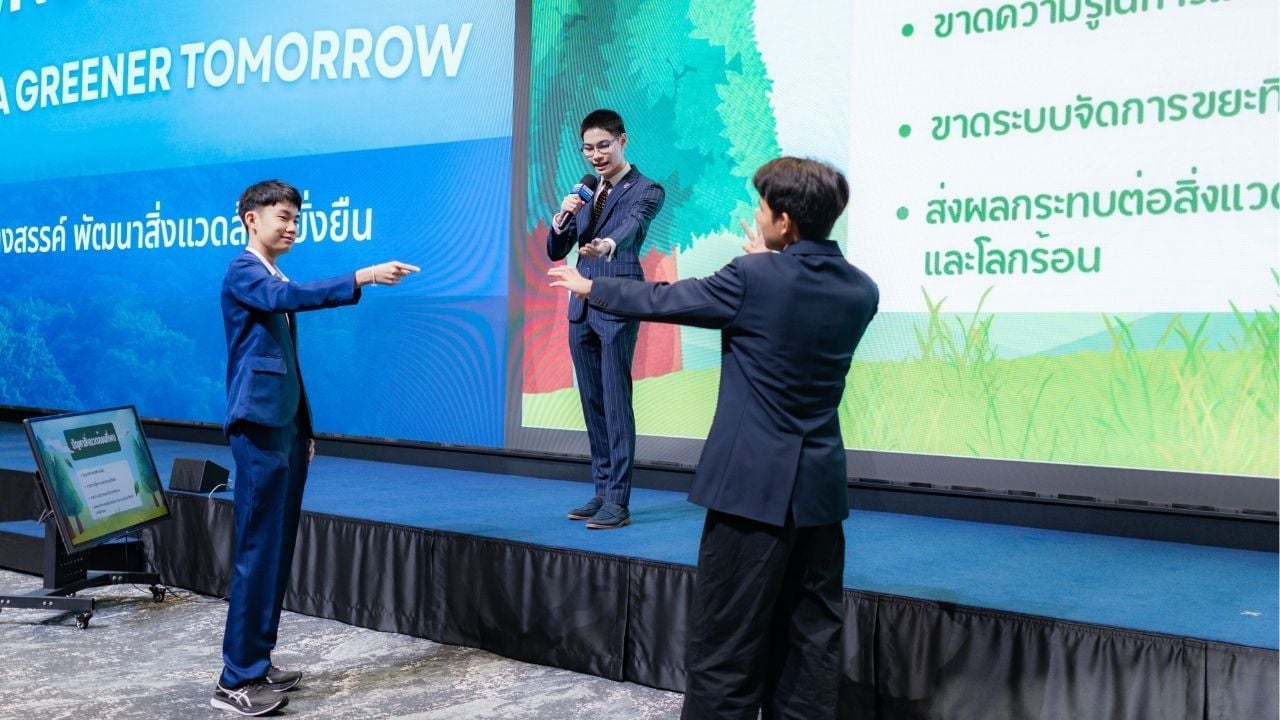
This emphasis on communication stood out. It is one thing to build a prototype or launch a recycling drive. It is another to inspire others to join you, support your work, and carry the message forward.
As the final presentations wrapped up in Bangkok, it was clear that the competition was not just about awards or funding. It was about creating momentum and shaping a generation of young people who see sustainability as both urgent and achievable.
Looking ahead
Many of the students I spoke with plan to continue their work past Wonder Lab. GreenCycle wants to expand its recycling initiatives to more schools. eco.edu is refining its board game to cover a wider range of environmental topics. Trashformers hopes to produce improved air purifier models and distribute them more.
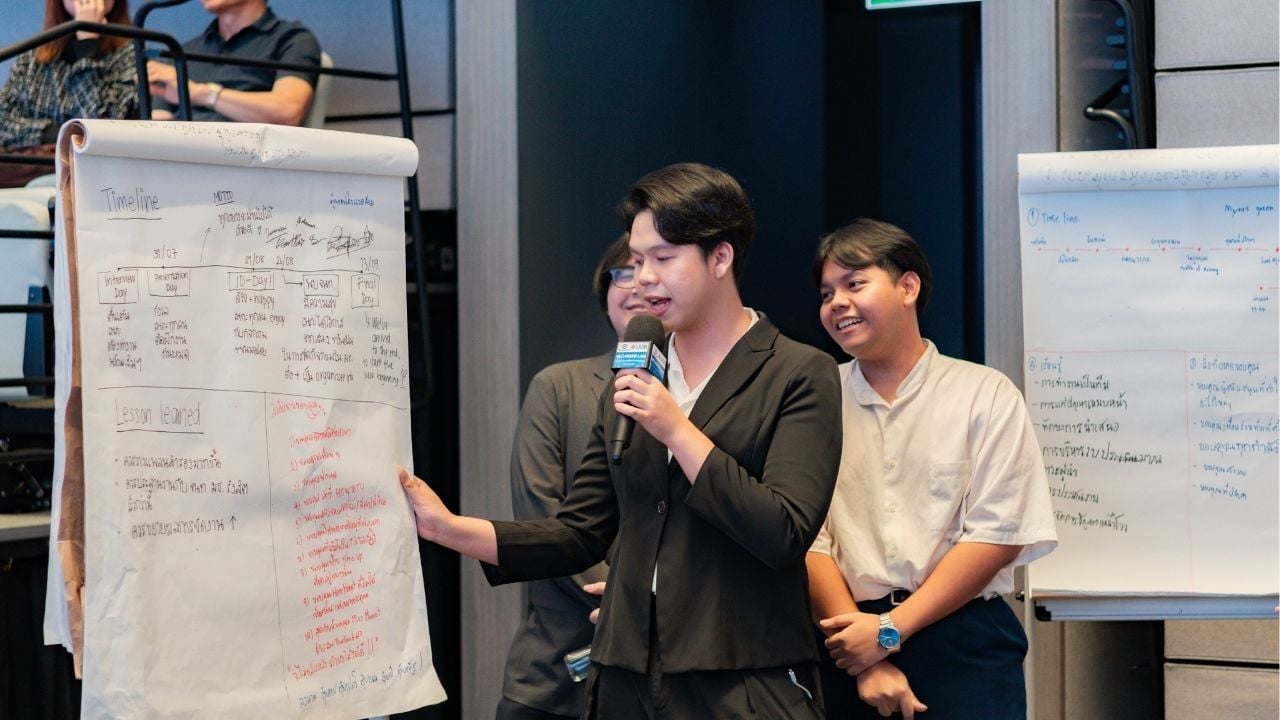
What started as a one-month challenge is turning into long-term action. That, perhaps, is the most promising outcome of all from Wonder Lab.
For Thailand, and for those of us living here, these young innovators offer a glimpse of a future where sustainability is not just a buzzword but an effort that is shaped by creativity, collaboration, and courage.
Latest Thailand News
Follow The Thaiger on Google News:


























